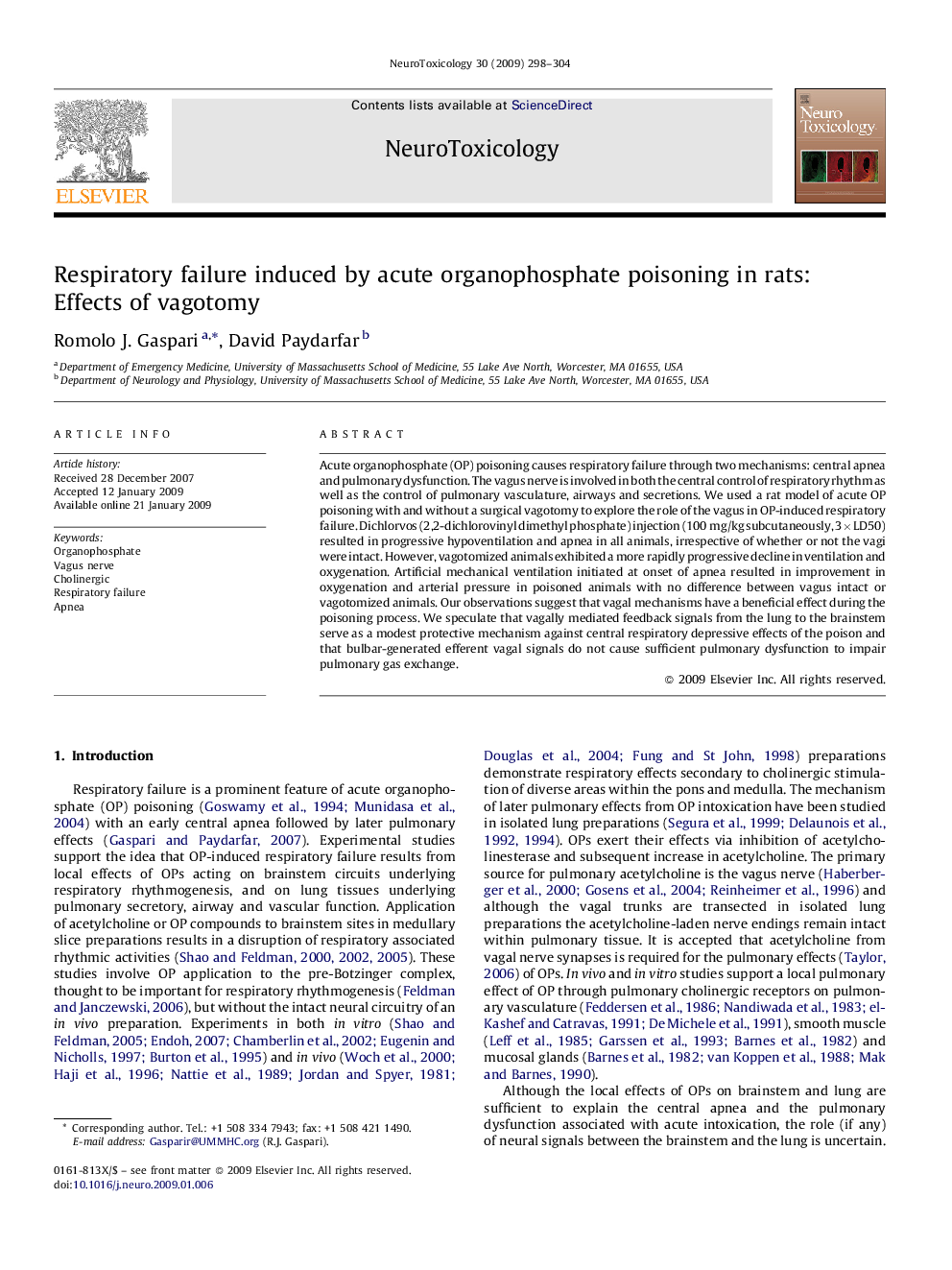| Article ID | Journal | Published Year | Pages | File Type |
|---|---|---|---|---|
| 2590248 | NeuroToxicology | 2009 | 7 Pages |
Acute organophosphate (OP) poisoning causes respiratory failure through two mechanisms: central apnea and pulmonary dysfunction. The vagus nerve is involved in both the central control of respiratory rhythm as well as the control of pulmonary vasculature, airways and secretions. We used a rat model of acute OP poisoning with and without a surgical vagotomy to explore the role of the vagus in OP-induced respiratory failure. Dichlorvos (2,2-dichlorovinyl dimethyl phosphate) injection (100 mg/kg subcutaneously, 3× LD50) resulted in progressive hypoventilation and apnea in all animals, irrespective of whether or not the vagi were intact. However, vagotomized animals exhibited a more rapidly progressive decline in ventilation and oxygenation. Artificial mechanical ventilation initiated at onset of apnea resulted in improvement in oxygenation and arterial pressure in poisoned animals with no difference between vagus intact or vagotomized animals. Our observations suggest that vagal mechanisms have a beneficial effect during the poisoning process. We speculate that vagally mediated feedback signals from the lung to the brainstem serve as a modest protective mechanism against central respiratory depressive effects of the poison and that bulbar-generated efferent vagal signals do not cause sufficient pulmonary dysfunction to impair pulmonary gas exchange.
